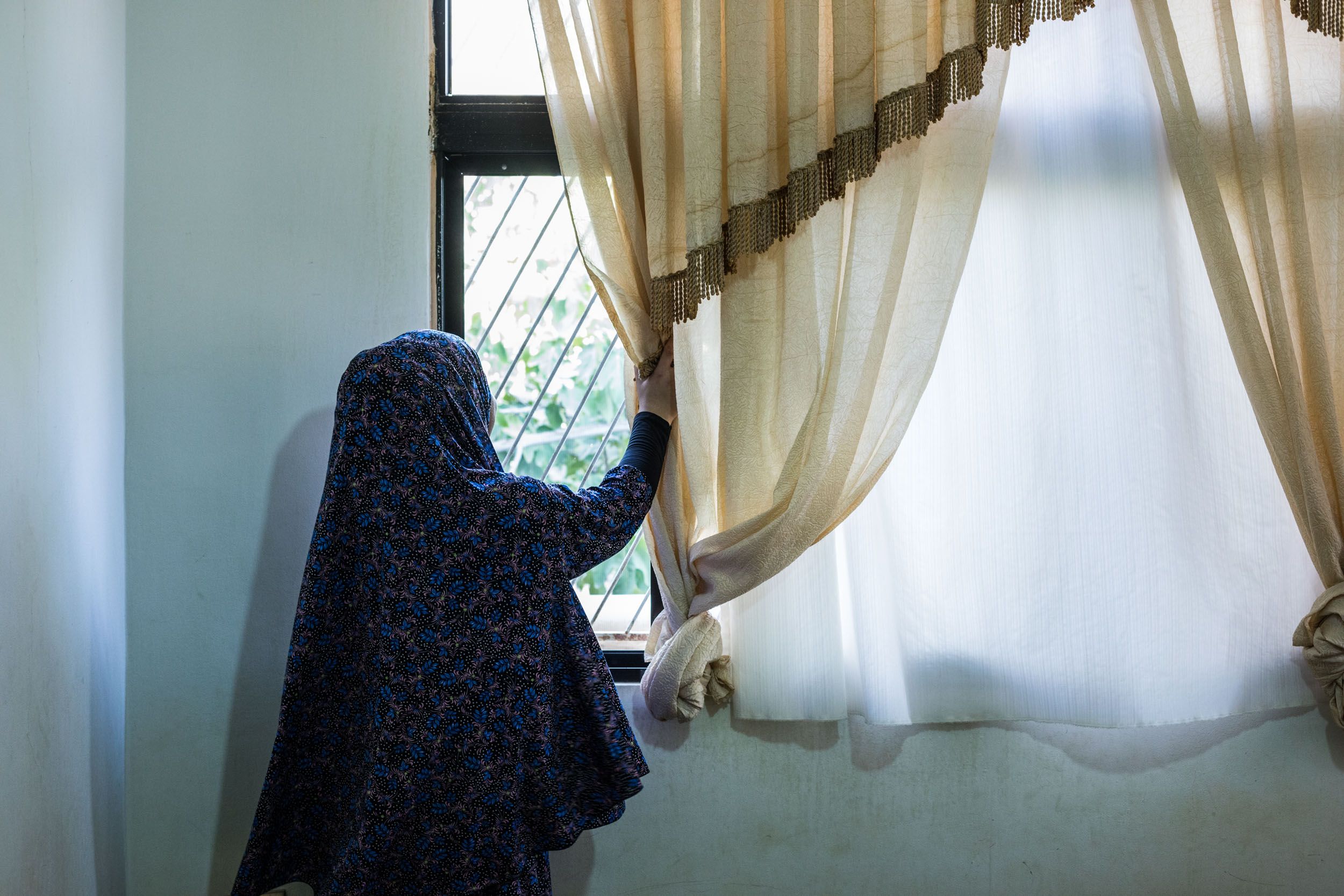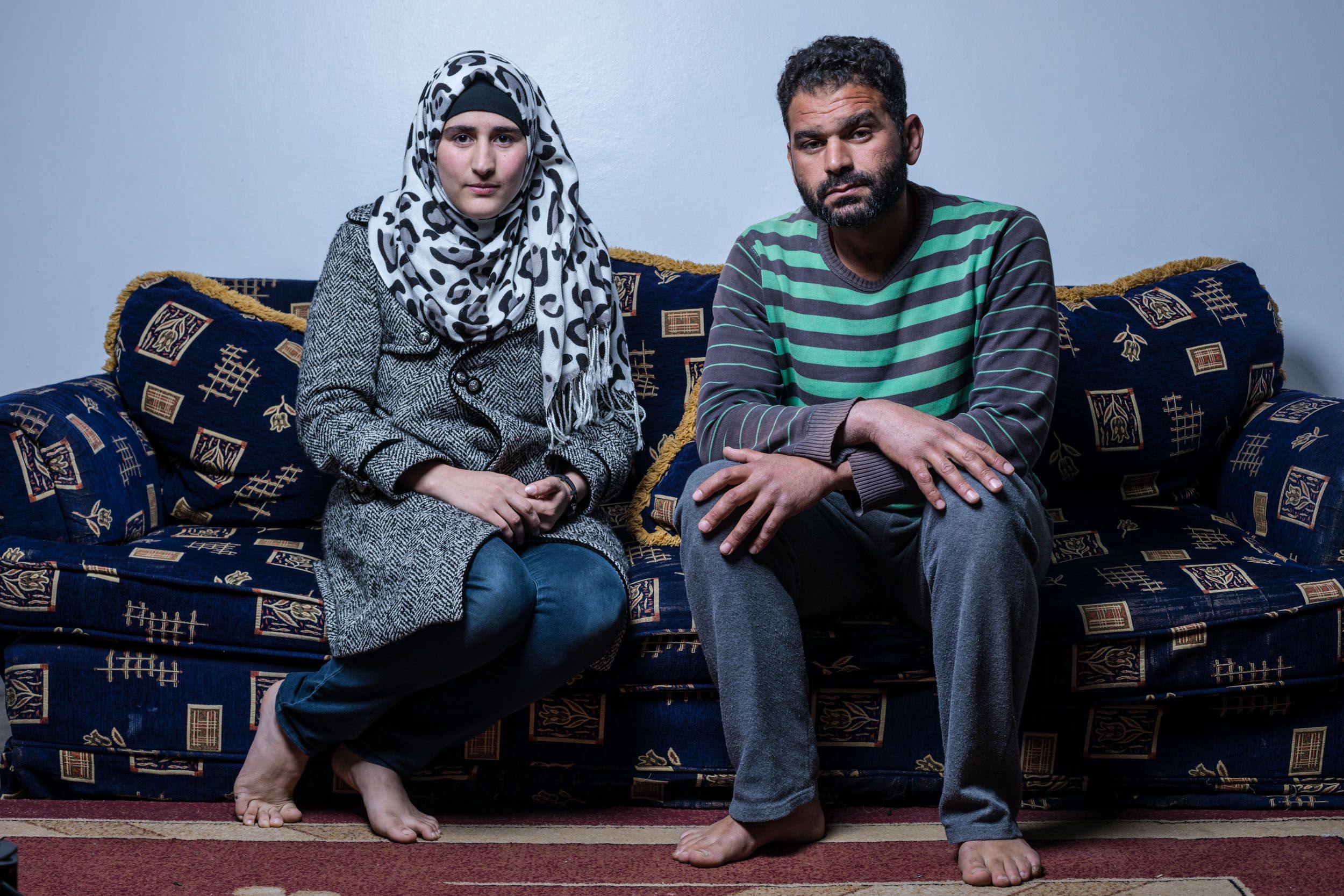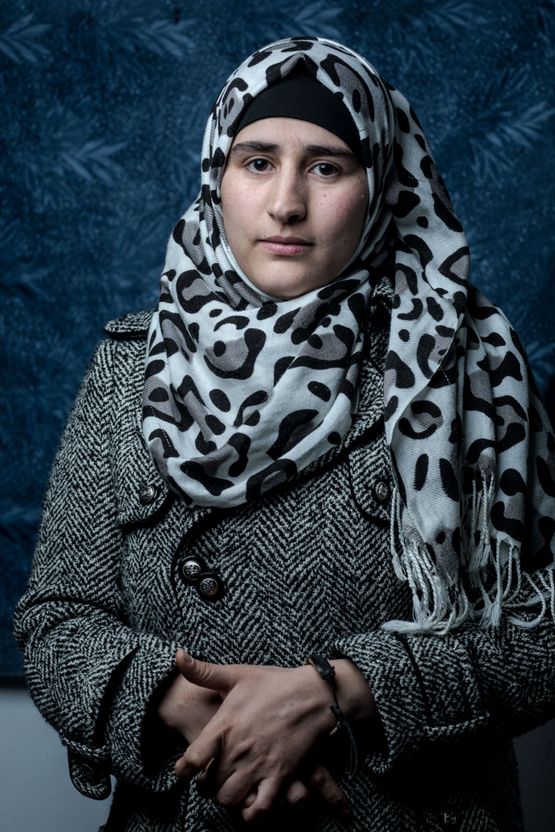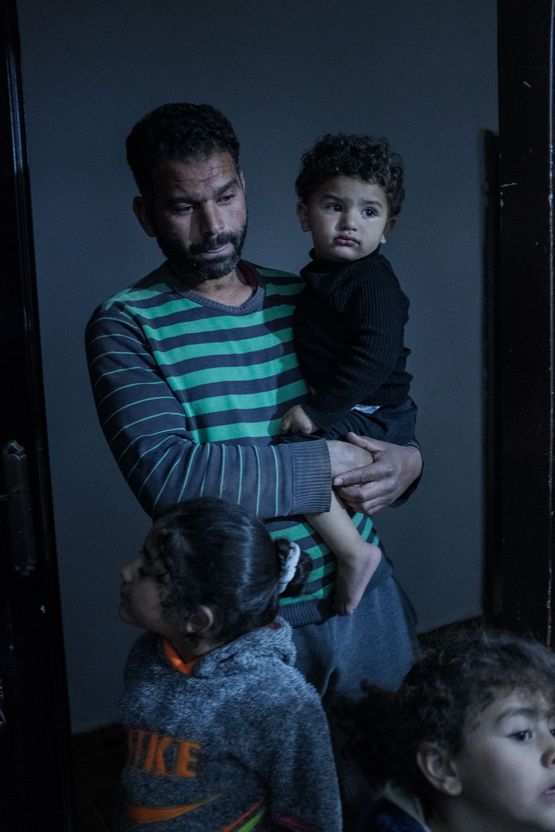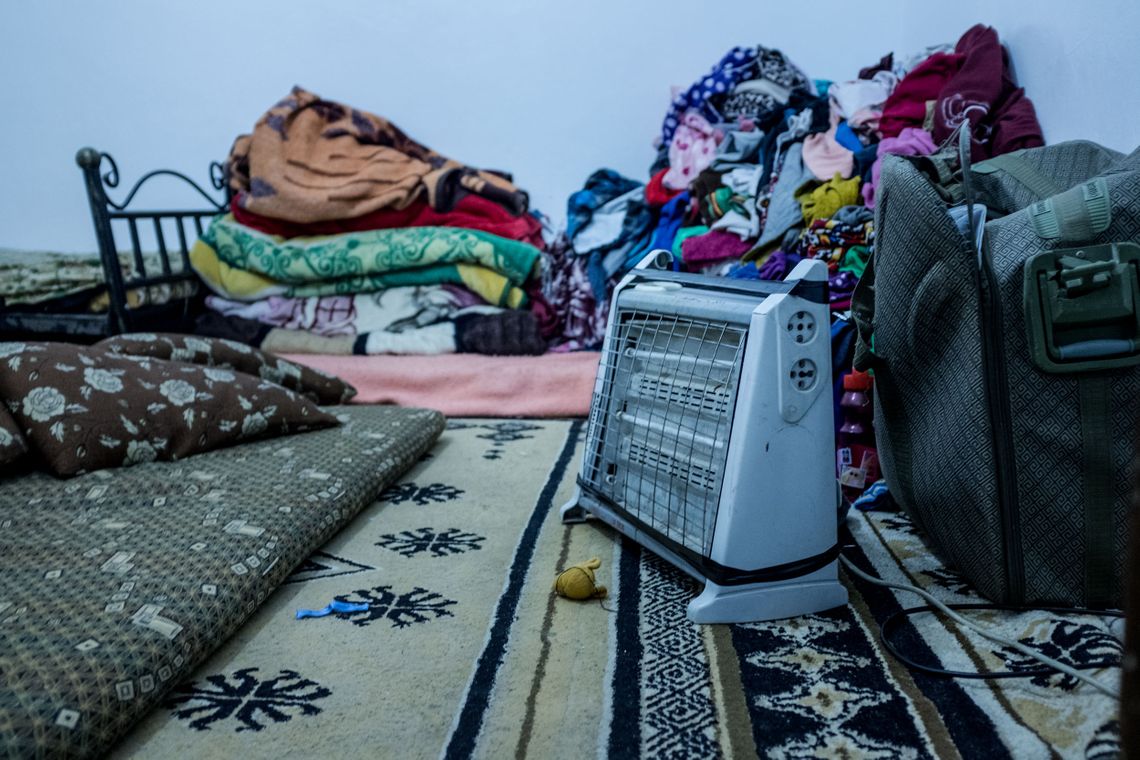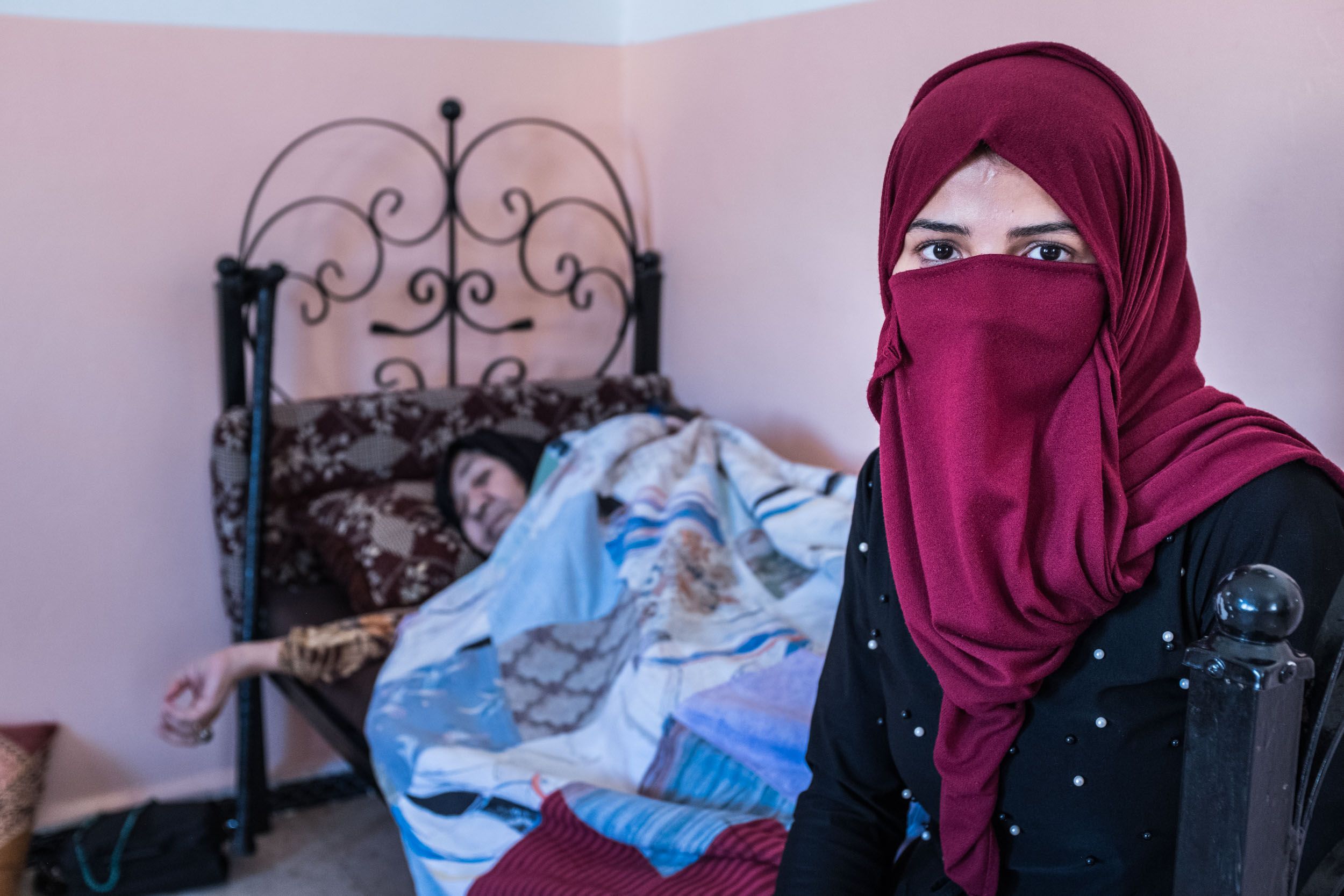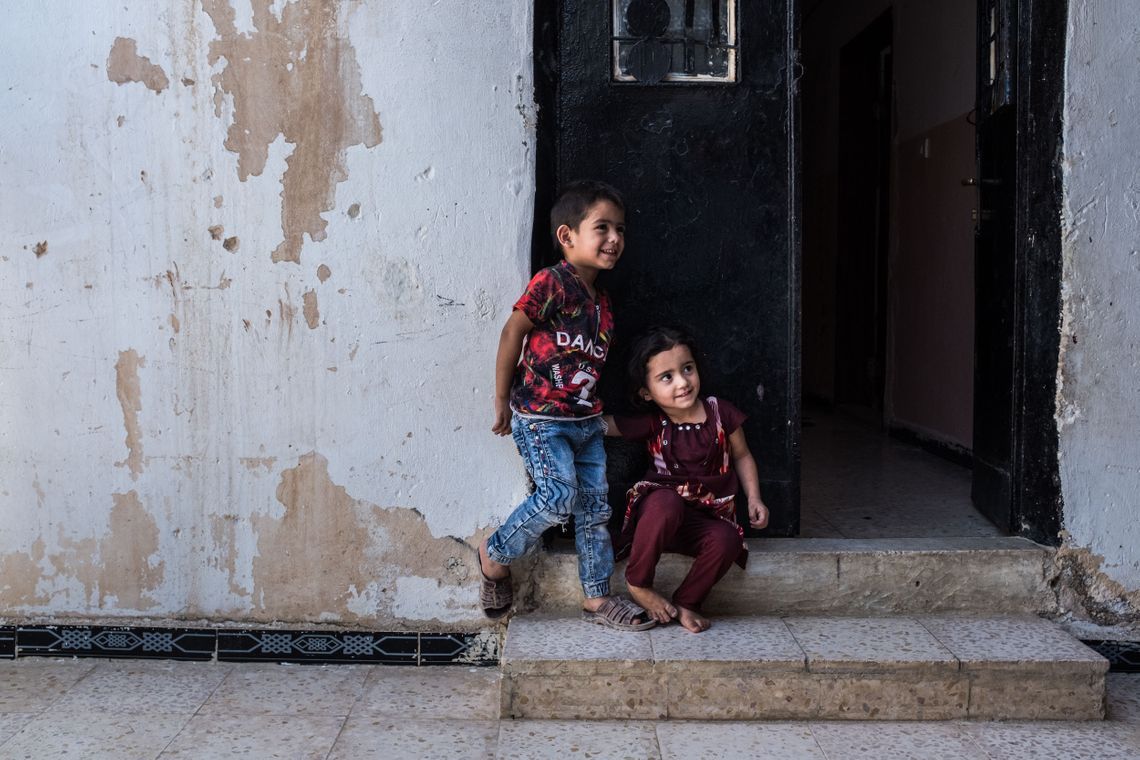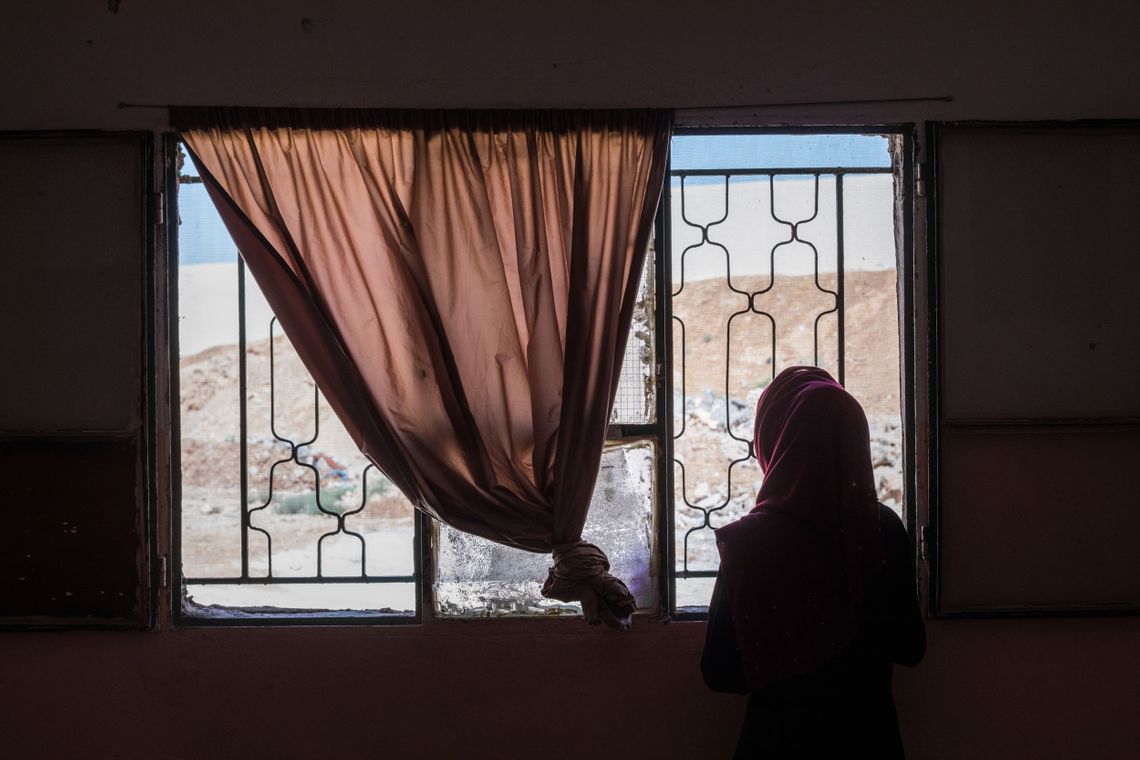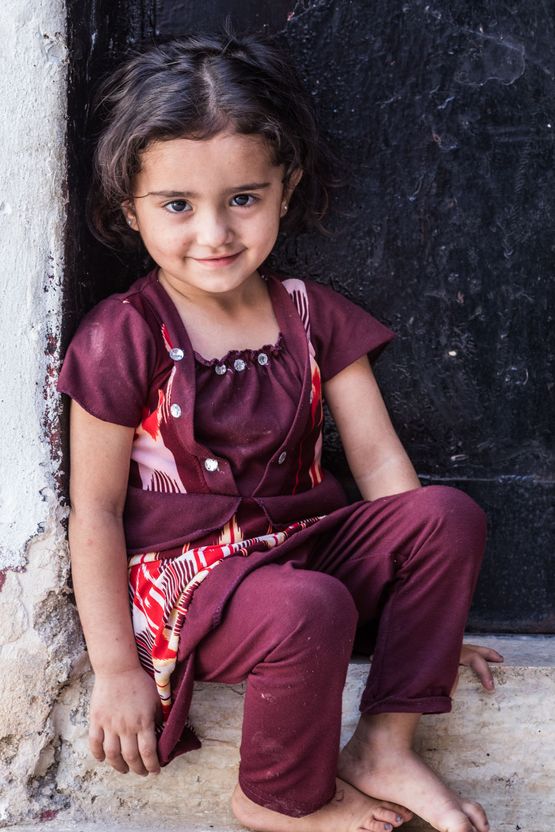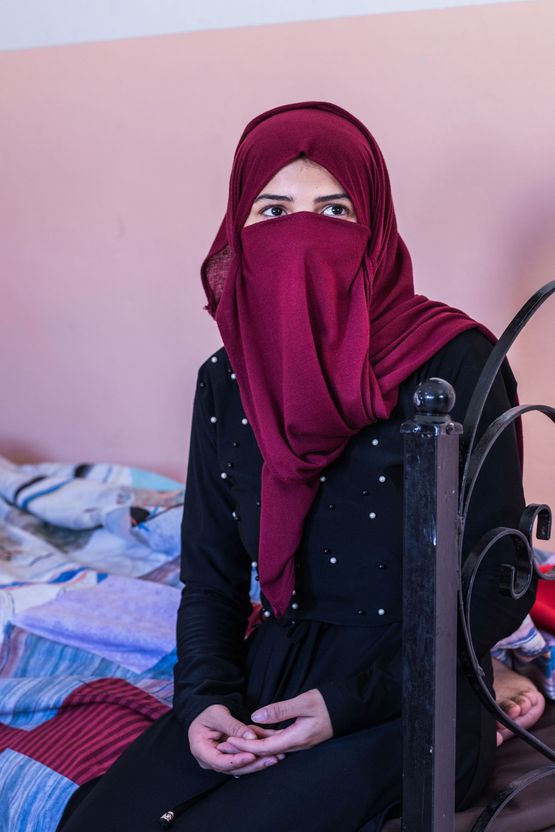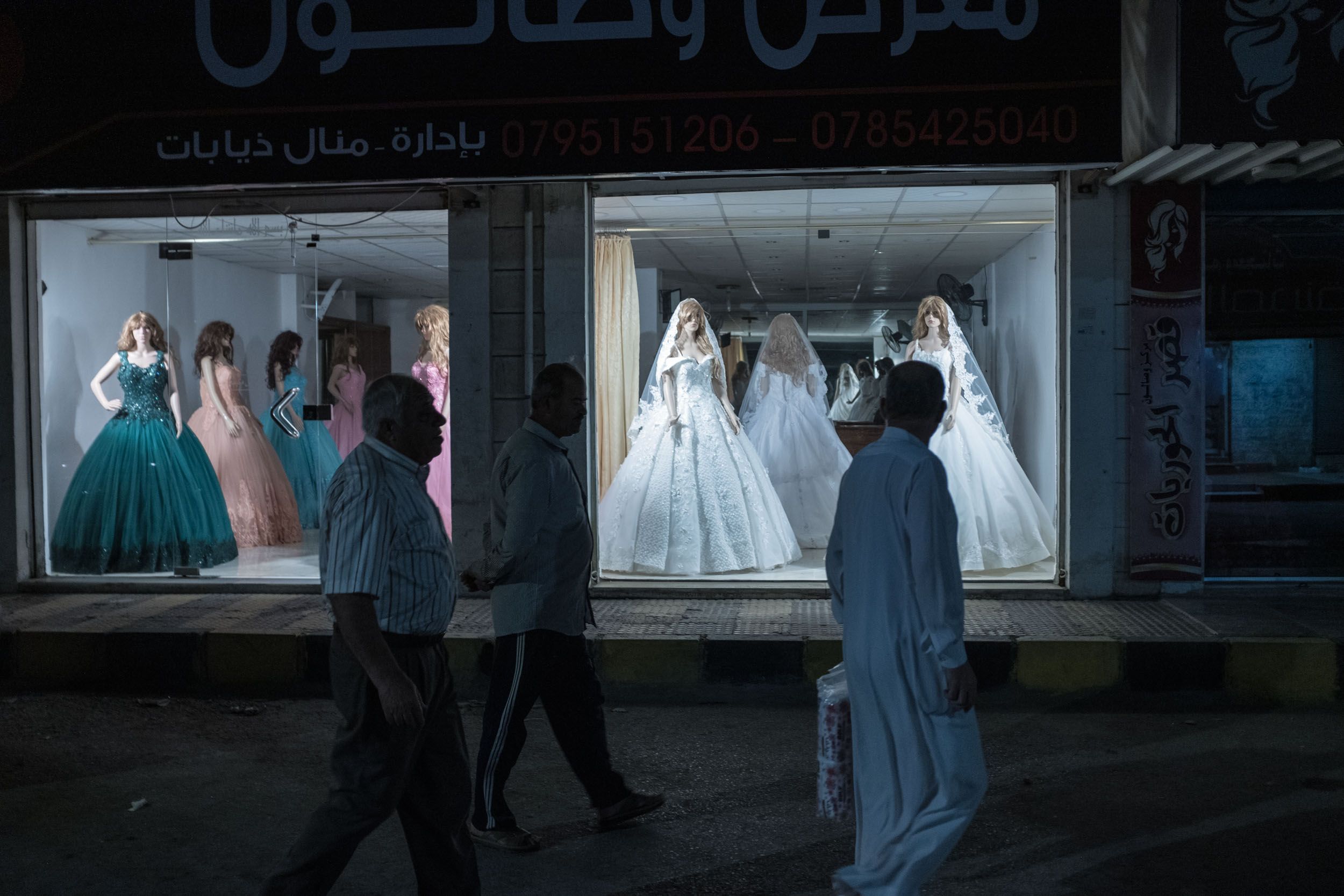-
Image info
Maryam, a Syrian child bride. She fled the war in Syria to Mafraq in Jordan. There she was married at the age of 15 to Hassan from Saudi Arabia. She spend a week in a hotel in Amman and got pragnant. He left her after the sexual abuse. She gave birth to Ahmad 8 months later.
Each year an estimate of 10-11.000 underaged girls are married off as child brides in Jordan.
The Syrian crisis have created a situation where girls as young as 12 years old are being sold. An industry of sexslavery have emerged in the Middle East and Jordan is one of the countries, where the Syrian girls are particularly at risk. Mainly it is men from the Gulf States that take advantage of the situation and find their way to buy sex with minors.
UNICEF estimates that between 10-11.0000 girls under the age of 18 are being married off to older men each year in Jordan. The legal age of marriage in the country is 18, but with a legal consent one can be married as young as age 15.
-
Read more
It is the parents who sell their daughters. Typically the trade goes through Syrian women, who have local knowledge and access to the Syrian refugee families. But it is also common to see the perpetrators pay locals in between $75 to $150 to be taken to a Syrian family with a potential child bride.
The Syrian refugees live in extreme poverty. Many children are not in school, getting food once a day can be a struggle and they are deprived from basic needs. When the violators approach the families and ask for marrying their child, it is often with promises of education, luxury, food and a bright future in the Gulf States. The price for a child in Jordan is between $250 to $3.600.
In order for the man to have a ‘legal’ sexual relation with the child, it is normal to enter a so called misyar marriage. This type of marriage allows the man to have sex (halal), be married on short term, live apart and he is not financially responsible for his wife. No witnesses are required and the wife has no rights. The marriage can last from an hour to months and even years. Typically it is a scholar from the local Mosque who is payed to arrange the marriage contract.
Many times the girls end up in hotels where they are sexually abused and violated during the course of a day to weeks. The men depart on notice of having to settle the official papers in their home country to be able to bring their spouse. They never come back and the girls return to their families. Sometimes pregnant as a result of the sexual abuse. Some girls are protected by their families, who have recognized their failure and betrayal of their child. Others end as a commodity in prostitution to make a living for their families, since they are impure and therefore a shame to the family honour.
Early marriage exposes girls of sexual, physical, psychological and emotional violence. Children married before the age of 15 are twice as vulnerable as women who are married after the age of 18.
Jordan has pledged to eliminate all harmful practices, such as child, early and forced marriage in 2030 in accordance with The Global Goals For Sustainable Development (Goal 5.3). But in Jordan 80% of the Syrian refugees live in urban areas outside the refugee camps, where they often are forgotten and left to themselves.
Most child marriages are done religiously and are not registered officially. Today the Government of Jordan recognises the scale of the problem, and several NGOs are working with the issue in Jordan and the region.
The people portrayed in this photo series highlight the scale of the problem. It lays out the complexity and emphasize some of the many reasons underaged Syrian girls end up in forced marriages and as child brides in Jordan.
Other ARTICLEs | FROM CHILD TO BRIDE - FATIMA'S STORY
Documenting the growing issue of child brides and early marriage in the region of Syria has been one of Martin Thaulow's long term projects. He has been traveling in Turkey, Jordan and Lebanon to meet, interview and portray victims of early marriage and their families.
His work is a testimony and an extensive documentation of the problem, the girls affected and the consequences of these acts. Martin searches and investigates the many reasons of early marriage and child brides to gain knowledge and get insights into this complex topic.
The work and research has been carried out with support from DANIDA, The Ministry of Foreign Affairs of Denmark. It has been commissioned and published by media and displayed in exhibitions. It is an ongoing project.
NOTE | All of the girl’s names have been changed. We know their true identity.
REQUEST | An exhibition or an artist talk by Thaulow about this work.
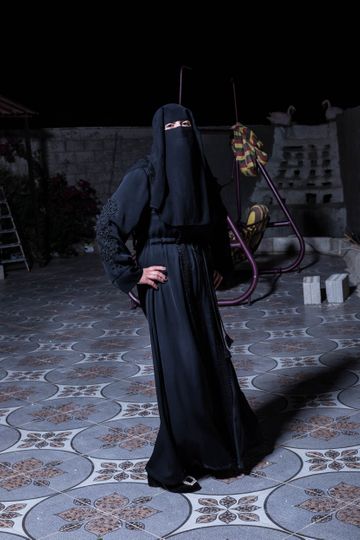
-
Story
Dareen - Married at the age of 15 for the second time to a Jordanian man.
In Homs (Syria), Dareen was married for the first time when she was 13 years old. After 6 months her 22-year-old husband turned out to be a violent and abusive offender. When the war started Dareen was divorced and in 2012 she and her family fled Syria to Camp Zataari in Jordan.Dareen is 15 years old when she gets married for the second time. His name is Omar and he is a 33-year-old Jordanian. The dovery is a few golden bracelets and some earrings made of gold. They move to the house of Omar’s parents in Mafraq, but she is not welcome. The parents can not stand the sight of her, because she is a Syrian refugee. Their hatred runs freely and she is subject to daily beatings and humiliations from both Omar and his family.
Dareen’s family can not protect her as they are Syrian refugees, and Omar’s family is Jordanian, giving them more rights. However Dareen succeeds to get a divorce, but at a high price. Omar and his family keep her 6-month-old son.
"People exploit the Syrian situation. I’m willing to take any job, but I can’t find any. We can’t find any jobs. I survive hand-to-mouth from day to day. I’m desperate". - Dareen
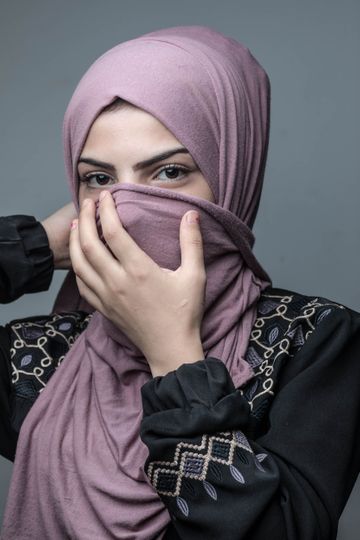
-
Story
Jamila - Married at the age of 13 to a man from the UAE.
Jamila, her brother and mother fled Syria to Mafraq in Jordan after the death of the father in 2014.
Living in Mafraq is extremely tough and getting food a constant struggle. Shortly after their arrival they are approached by Abdul. A man from the United Arab Emirates who allegedly runs a travel agency bringing people to pilgrimage (Hajj) in Mecca. In less than a day the marriage is arranged and carried out.There is no wedding, but a scholar from the local Mosque takes care of the papers and a ceremony at the home of Jamila. The mother believes her daughter's future is safe. Jamila on the other hand is in a state of chock. The the beginning of 3 years of violence, sexual abuse and exploitation has begun.
Every 40 day Abdul pays a visit for 3 days. Jamila is informed on WhatsApp a day in advance. He arrives in the evening and leaves again in the morning. One day Abdul proudly announces that he has another Syrian wife in Mafraq. Yet another minor.The divorce is put in affect abruptly. An incident takes place as Abdul gets in to an argument with the Jamila’s brother. It all ends when Abdul is beating up both of them breaking the brother’s arm. Abdul repeals the marriage and never comes back, though he is still seen in the streets of Mafraq today.
"When there is war and refugees one can acquire a cheap bride. For the men from the Gulf States we are like buying a toy." - Jamila
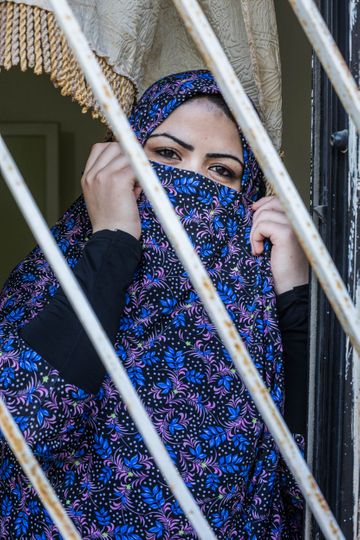
-
Story
Maryam - Married at the age of 15 to a Syrian man working in Saudi Arabia.
Myriam fled Homs in Syria to Mafraq in Jordan together with her family. Life in Jordan is difficult and the family lives in extreme poverty. One day the family is approached by a man which is impersonating to be the father to a guy called Hassan that lives and works in Saudi Arabia.
He seems to be an honorable man with good intentions and one week later Maryam is married to Hassan with the promise to move to Saudi Arabia. Maryam spends a week in a hotel in Amman with Hassan, he then travels back to Saudi Arabia as he is going to arrange to bring her.Maryam realises she is pregnant, but Hassan will not admit to the pregnancy and rejects her. She never hears from him again and 8 months later she gives birth to her her son Ahmad at the parent’s home.
“In the beginning I loved him… but when the first child came everything changed.”
– Layal, married at the age of 14 to Samir
-
Story
In the beginning of the Syrian revolution Layal was 14 years old, living in Daraa. One day after school she was informed about her coming marriage. She was told by her father that it was to protect her against rape from strangers. Preparations were done within a week and then she was married to the 28-year-old Samir. Immediately after marriage Layal was pregnant and Samir turned out to be a brutal aggressor.
In 2013 the war intensifies in Syria and Layal flees to Zataari in Jordan with the first child on her arm. She is together with her parents and sister and shortly after Samir joins them. Only to make things worse as he brings along troubles. The arguments escalate, but so do the violence and abuse. Layal is being isolated, locked up and Samir’s favourite tools for punishment are his leather belt and a stick.
Layal is being raped. She attempts to take p-pills to prevent more pregnancies, but Samir throws the pills into the toilet. More children are born.
At the time of this photo Layal was 22 years old and she had given birth to 4 children. They were having severe economic problems, and Samir only worked occasionally doing day-to-day work on construction sites in Irbid. They could not afford food and Layal was still a victim of violence, sexual abuse and humiliation.
Samir had begun beating the oldest of the girls and was threatening to prostitute Layal to support the family. Layal had lost faith in life. Since their escape to Jordan, she had attempted to commit suicide 3 times.
Jamila became a victim of early marriage when she was forced to marry a Syrian man to protect her against rape from strangers.
Jamila, married at the age of 15
-
Story
Nour fled from Homs in Syria to Mafraq in Jordan together with her family. They are poor, the mother is handicapped and the father has a herniated disk making him incapable of working. The family’s income is based on Nour’s 4 years older brother selling vegetables at the local market. This is not enough to manage the payments. To survive the father takes loans from others and accumulates debt.
Nour’s father fears that men will abuse his daughter and bring shame upon the family. It gets to a point where Nour is kept at home and denied going to school. In the end Nour is married off to Alaa, an 18-year-old Syrian boy. He is an acquaintance of the family. According to Nour’s father, Alaa is from a Syrian family known to have money and therefore this marriage seems to be the ticket to secure Nour’s future.
A month after the wedding Nour is pregnant, and later she gives birth to their daughter Sham. Nour is living in the house of her in-laws. She takes care of the daily duties, but something is about to go wrong. Alaa has begun controlling her and asks questions about everything. He demands that Nour wears a niqab. Beatings and rape become a daily routine.When Sham is one year old Nour succeeds, with help from her family, to get a divorce. She and Sham moves back to her parents.
At the time when the photos were taken, Nour was 17 years old. Since the interview was made Nour has been married to another Syrian man. He abuses her and she has aborted a child. Sham does not live with Nour and the new husband, but instead she is staying at the home of her grandparents.
